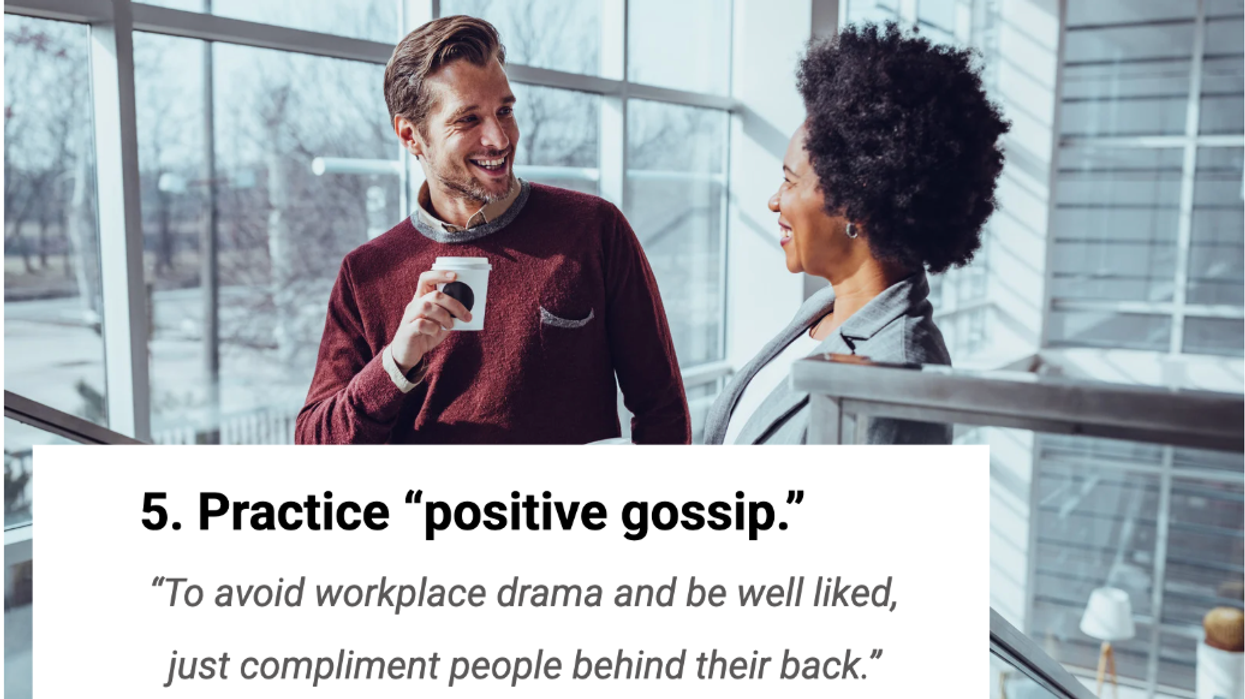Unless you’re a hermit isolated in a mountain cabin with WiFi, everyone reading this has and will interact with *shudder* people. For some folks, being social can be a minefield of interactions with friends, family, coworkers, and sometimes your spouse. The cool thing is that you’re not alone in these feelings.
It’d be kind of nice to have some strategies on hand to help navigate through potentially awkward situations or arguments. It’d also be nice to avoid conversational hassles, too. Fortunately, there are a few mind tricks that others have mastered that people were eager to share on Reddit.
@jozadak What social awkwardnes is actually like #anxiety #mentalhealthawareness #anxious #socialanxiety #anxietyattack
These little brain workarounds are helpful mini-guides to have better interactions with other people, bend conversations your way, or fantastic methods to outright avoid awkwardness altogether. Here are 15 of the best upvoted tips people have shared on what to do if you’re stuck in very common social scenarios.
1. Ask your date what they DON’T want.
“One that I picked up from a friend of mine whenever he was trying to pick out dinner with his girlfriend. Rather than asking ‘What do you want?’ and getting the typical 'I don’t know, anything' answer and then having suggestions shot down, start with 'What do you NOT want?’
Used it a few times in some of my relationships and it's the godsend question.”
2. “Agree” with a person’s anger.
“If they are at a level ten you come in at a level seven. Being completely calm, reserved, and polite only pisses people off more as you ‘clearly don't understand the magnitude of the situation.’ If they are screaming and yelling, you need to come in loud but not attacking them...agreeing with them (to a point):
- ‘Whoa, the f**k is going on?’
- ‘I understand why you are f**king pissed, I would be pissed, too.’
- ‘Yeah, that is some bullsh*t, the situation really sucks.’
- ‘Look, I get it. I would be angry as sh*t, too, but us screaming is going to get anything done, no matter how angry we are.’
- ‘I'm with you, I'd be just as upset.”
- ‘No doubt, this is annoying but these are our options.’
By agreeing with their anger they are more open to listen to you… Works pretty much every time, but there might be a little up and down in the middle. Just follow the person's lead while always being a level below them.”
3. Just say “hello.”
“Saying hello to everybody you know, and with a smile. Often people who know each other from when they were in primary school or just from the block when they were young give each other an awkward smile instead of a happy ‘good day!’ If someone walks into you twice a year and both times you smile and greet them enthusiastically, they will think of you as a nice person.”
4. Divert eye contact to divert questions towards someone else.
“If you find yourself in a group situation where someone (a leader, tutor, manager, etc.) is asking questions that must be answered and you want to avoid being picked so that you don't have to talk, then here is my tip: If the person locks eyes on you as they ask the question, then just as they are about to get to the end of their question, break eye contact and look towards another person in the room and hold it. Their attention is diverted to that other person just as the question ends and the person they are now looking at feels compelled to answer. If, however, the person starts asking the question while looking at someone else then look at that other person and hold it so you can't get suckered. Use it sparingly because if you do it enough on the same person, they will be on to you.”
5. Practice “positive gossip.”
“To avoid workplace drama and be well liked, just compliment people behind their back.”
6. If you’re bothering your spouse, shift the conversation to their interests.
“When I do something annoying or bothersome to my husband and he goes quiet, I wait a few minutes and then I ask him a seemingly innocent question, usually on the subject of how certain parts of a car works, or something mechanical. This gets him talking about the car thing and he rambles for like five minutes and then bam! He’s happy again and not quietly brooding. I’ll never tell him I do that because I’m afraid it won’t work anymore if he knows about it. It’s foolproof though, it works every single time, no matter how bothered he is.”
7. You can learn a lot about a person by just shutting up.
“Listening to someone without giving advice or pushing for more information typically nets me more information than being pushy for it.”
8. Laughter makes the best distraction.
“I’m a professional poker player. When I am in a pot with one other player, I often try to make them laugh when they are thinking about what to do. If you can get them to laugh, it sets them in a mood where they are unlikely to bluff. I talk a lot in general, it's very common to make jokes at the table, even in hands.”
9. Shift your mood before socializing through music.
“Putting headphones on and playing the music that I know I’d want to hear if I was in the mood that I want to be in shifts me over to that mentally, and really helps when I need to calm down or when I need to feel happier.”
10. A winning argument starts with an agreement.
“In an argument, find something to agree on then push your main point.”
11. The perfect convo combination when bumping into acquaintances.
“My wife calls this the simplest, most manipulative thing I do.
Whenever I bump into an acquaintance (meaning not friend, just a person i know) I of course say hi and the conversation goes like this:
Me: ‘Hey! How are you, [person’s name]? You look good!’
Them: ‘Thank you, I’m good, how are you?’
Me: ‘I’m great, I'm on the way to [wherever I am going at the time and I tell them why, too]. So what are you doing here?’
Them: ‘ [Goes into the same details to tell me where they’re going and why]’
Me: ‘Alright, well I won’t keep you up any longer. Have a good day, [person’s name]!’
It leaves people feeling good, takes away the awkwardness of cutting a convo short, and it makes them want to leave.”
12. Turn hiccups into a debate to stop them.
“If someone says they have the hiccups, ask them to prove it. 9/10 times, their hiccups will disappear. Having to summon a hiccup in order to demonstrate will trick your diaphragm into just not hiccuping. I've been able to twist it around on myself with some success as well, but it takes practice. You realize you have hiccups, then actively try to make yourself do another one. It'll stop.”
13. Instead of apologizing, say thank you.
“Thanking someone for a trait you want from them. Instead of telling a customer you’re sorry for their wait, thank them for their patience or understanding. Works wonders.”
14. The final answer to the endless toddler “why?”
“My friend responded to her toddler's seventh question in an extreme "but why" chain with "well, why not?" in a really happy voice. Her son looked completely mind blown and stopped asking.”
15. Be direct and assign tasks rather than leaving your request open for volunteers.
“Be direct and personal when you need things. Instead of asking if anyone has an EpiPen ask who has an EpiPen. Instead of saying, ‘Someone call 911,’ point to someone and say, ‘You in the blue jacket, what's your name? Tom? Okay, Tom, go call 911 and come tell me when they are on their way.’”
*Note: Some entries were edited for clarity.























 There are plenty of low or no-cost date ideas.Canva
There are plenty of low or no-cost date ideas.Canva Couples can energize their relationship by finding bonding moments that reignite their wonder.Canva
Couples can energize their relationship by finding bonding moments that reignite their wonder.Canva
